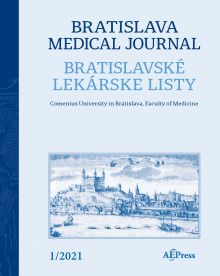Journal info
|
||||
Select Journal
Journals
Bratislava Medical Journal 2024 2023 2022 2021 2020 2019 2018 2017 2016 2015 2014 2013 2012 Ekologia - Ecology Endocrine Regulations General Physiology and Biophysics Neoplasma Acta Virologica Studia Psychologica Cardiology Letters Psychológia a patopsych. dieťaťa Kovove Materialy-Metallic Materials Slovenská hudba 2025Webshop Cart
Your Cart is currently empty.
Info: Your browser does not accept cookies. To put products into your cart and purchase them you need to enable cookies.
Bratislava Medical Journal Vol.117, No.12, p.715-721, 2016 |
||
| Title: Possible contribution of nitric oxide and prostaglandin in the protective effect of angiotensin (1-7) against stress induced gastric ulceration in adult male albino rats | ||
| Author: M. K. A. Hassan, N. M. Aziz, M. A. E. Shaaban, R. A. Rifaai | ||
| Abstract: To assess the gastro-protective potential of the angiotensin (Ang-) (1-7) on the gastric secretion and ulceration induced by cold restraint stress (CRS) in adult male rats and the possible contribution of nitric oxide and prostaglandin E2. Rats were pylorically ligated and divided randomly into the following groups (8 rats each): control, cold-restraint stressed (CRS), stressed Ang-(1-7) treated, stressed L-NNA-Ang-(1-7) treated, stressed Indo-Ang-(1-7) treated groups. Our results revealed that Ang-(1-7) pre-treatment proved to be protective against development of ulcerative lesions in CRS model as evidenced by histological examination and the reduction of the ulcer index and this could be mediated through reduction of free and total acidity and pepsin concentration of gastric secretion with significantly decreased lipid peroxidation and increased the gastric protective nitric oxide and prostaglandin E2 levels. Furthermore, Ang-(1-7) pre-treatment has anti-apoptotic effect, evident by its down-regulation of the CRS induced over-expression of the gastric caspase 3. In addition, the gastro-protective effects of Ang-(1-7) were significantly attenuated by co-administration with L-NNA or indomethacin. In conclusion, Ang-(1-7) can be considered a potential therapeutic agent to protect against the major clinical challenge of gastric injury resulting from stress. Nitric oxide and prostaglandin E2 seem to contribute to the Ang-(1-7)’s gastro-protective effect (Tab. 2, Fig. 5, Ref. 35). |
||
| Keywords: angiotensin (1-7), cold restraint stress, Nitric oxide, prostaglandin E2, caspase 3 | ||
| Published online: 28-Dec-2016 | ||
| Year: 2016, Volume: 117, Issue: 12 | Page From: 715, Page To: 721 | |
| doi:10.4149/BLL_2016_137 |
||
|
|
 download file download file |
|

